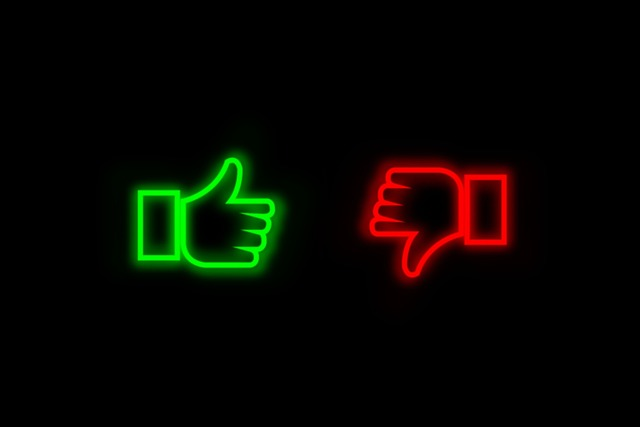
As a small business owner or aspiring entrepreneur, you might think that business loans are your company’s only financing option. However, several small business owners launched or grew their companies with money from personal loans.
While mixing personal and business finances is generally a bad idea, there are instances where using a personal loan for business makes sense. Personal loans usually have much lower qualifications and don’t limit how you can use the funds as much as business loans.
However, you must be cautious when using this approach. Personal loans for business put your personal assets at risk, could impact your credit, and don’t help you build business credit.
This guide provides what you must know about personal loans for business, including how they work and your options. Specifically, we’ll answer these questions and more:

Personal loans are a type of consumer credit that usually provides quick and flexible funding with fixed interest rates and fixed monthly payments. Individual consumers can use these loans for various purposes.
Most personal loans are unsecured, meaning they don’t require collateral. A secured loan includes collateral, which provides security for the lender.
However, depending on the borrower’s creditworthiness, some lenders might only offer a secured personal loan. These loans usually require a savings account, investment accounts, or tangible assets as collateral.
Unsecured personal loans tend to have higher interest rates.
Personal loans can technically be for any amount, but most commonly, they range from $6,000 to $50,000.
Personal loan APRs typically run between 6% and 36%. Borrowers can save money on APRs by paying the principal off early.
Some lenders will use a flat rate, which applies the interest as a one-time fee. For example, an 18% (or 1.18) rate might be applied to the principal at the beginning of the loan and then becomes the new loan balance. While it’s much easier to calculate, borrowers cannot save interest by paying it off early. However, there could be an early payoff discount in some cases.
The loans might also carry fees, such as origination fees. Other fees could include documentation or late fees.
The comparison between business and personal loans depends on the person applying for them. One person (business owner or not) could have an easier time qualifying for business loans, while the opposite could be true for someone else. So, you can’t say that personal loans will always be cheaper or business loans will always be harder to qualify for. When you take subjective factors from the picture, the two are similar. The only fundamental differences are the number of requirements and the intended use of the funds.
Both options come in various forms, like lines of credit, short-term loans, long-term loans, etc. You can find business and personal loans with similar borrowing limits and terms. But unlike personal loans, certain business loans are specifically geared towards specific purposes.

One of the most significant benefits of personal loans is that you can use the money for virtually any purpose. Here are some of the most common ways people use personal loan proceeds.
Consumers with high credit card debt with high APRs sometimes struggle to make monthly payments. Only making the minimum monthly payment also leads to massive interest payments. In addition, carrying high credit debt causes high credit utilization rates, which lowers your credit score.
A debt consolidation loan provides funds to pay off all or most of your high-interest debt. Consolidating high-interest debt gives the consumer one fixed monthly payment rather than multiple, fluctuating payments. In addition, the revolving debt of the credit cards becomes installment loan debt, significantly lowering credit utilization (but it still impacts the debt-to-income ratio, which we’ll discuss later).
Another common reason someone might take out a personal loan is to cover expenses for a major life event. Examples include:
Weddings.
Honeymoon or vacation.
Divorce costs.
Moving expenses.
Holiday shopping.
Some homeowners use personal loans to finance home repairs or renovations. While there are dedicated loans for this purpose (such as a home equity loan or line of credit), they usually require putting the house up as collateral. Some homeowners prefer not to take that risk and opt for an unsecured personal loan.
Health and dental insurance only cover so much. Depending on a person’s plan, there could be significant out-of-pocket costs. This is especially true for more expensive and ongoing care, such as cancer treatment, major surgeries with rehab, and more.
Another benefit of personal loans is that they’re usually quick to fund. Online, alternative, and non-bank lenders can sometimes fund these loans on the same day or within 48 hours. Even brick-and-mortar banks, which typically have slow funding times, can fund personal loans quickly.
That funding speed makes personal loans viable options for emergency expenses. Examples could include urgent vehicle repairs, replacing a damaged roof, emergency surgery, etc.
While it’s generally considered a bad idea to finance business expenses with a personal loan, sometimes it makes sense. Startups, in particular, can benefit from using a personal loan. Covering a short-term cash flow gap or other business needs might also make sense.

Eligibility for loan approval varies between lenders. When reviewing a loan application, lenders will consider your credit score, annual income, and credit report.
Your credit score is an essential determining factor for almost every financing product. The number is based on your credit history.
While the minimum qualifications vary by lender, you’ll typically need good credit to qualify. Credit scores also determine the interest rate you receive and play a role in determining your borrowing amounts and terms.
For example, if you have fair or good credit, you might get approved but with a high APR. The same loan with a very good or exceptional score will have a much lower APR.
The two most common credit scoring models are FICO® scores and VantageScores®. Both models have score ranges of 300-850. The higher the score, the better.
Over 90% of the top lenders use FICO scores. Here are the FICO score ranges:
Exceptional: 800-850.
Very good: 740-799.
Good: 670-739.
Fair: 580-669.
Poor: 300-579.
Lenders also consider how much you make when determining loan amounts and approval. Specifically, lenders look at your debt-to-income ratio (DTI). This compares your debt obligations to your gross income.
To calculate your DTI ratio, add up your monthly debt payments, divide it by your gross monthly income, and convert the result to a percentage. Here’s the formula:
Total debt (revolving debt + installment debt)/Gross monthly income = DTI
For example, let’s say your monthly gross income is $5,800. Your mortgage payment is \$1,800, and your credit card bills total \$200. You’d calculate your DTI like this:
($1,800 + $200)/$5,800 = 34%.
Keeping DTI below 43% is recommended, but under 35% is considered good.
While lenders determine your creditworthiness and interest rate using your credit score, they often go beyond the score and look at your credit report. When a lender gets a copy of your credit report, it’s called a hard credit inquiry or hard credit pull.
Credit reports contain your entire credit history. Lenders look for any red flags, such as delinquent payments, defaulted accounts, and collections accounts. Major red flags include foreclosure or bankruptcy.
Negative marks like late payments or foreclosure stay on your credit report for seven years. Chapter 7 bankruptcy stays on your report for ten years.
However, the damage to your credit lessens over time, especially if you’ve had good payment history since the last negative mark. Hard credit inquiries stay on the credit report for two years but only lower credit scores for one year.
If a lender denies a loan request, it’s required to provide you with an explanation. For example, it could be for a significant issue like a recent bankruptcy or a temporary issue like too many recent inquiries.

Follow these steps to prepare and apply for a personal loan here.
It’s a good idea to check your credit score and pull your credit report before applying for credit. This lets you know how lenders view your credit profile.
When reviewing your report, look for any outdated or incorrect information. Correcting your credit report could help boost your credit score.
In addition, look for any areas where you could improve your credit history. You can get a free copy of your credit report at www.AnnualCreditReport.com.
If you have a low credit score, it might make sense to take some time to improve your credit before applying. For example, try to get credit utilization below 30% to lower your credit score.
View our complete guide on improving credit scores if dealing with bad credit.
It’s best to compare loan costs and terms between lenders. Your goal is to find the most beneficial personal loan for your finances.
Personal loan lenders include banks, credit unions, and online lenders (sometimes called alternative lenders or fintech lenders). A bank or credit union generally has the lowest rates but also the most stringent qualifications. Several lenders let you apply for pre-eligibility to see your rate by only conducting a soft credit check.
Here are the key considerations when comparing lenders.
Interest rates: The loan’s interest rate is the most crucial part of calculating the cost. A higher interest rate means a higher monthly payment and more interest paid throughout the loan. Most personal loans have fixed interest rates, but some offer variable interest rates. Look for lenders offering the lowest interest rate.
Loan Term: Lenders offer different repayment terms. A shorter term, say two years or less, means a higher monthly payment. However, you’ll pay the debt off sooner and pay less interest. Most personal loan terms are between three and five years.
Fees: As mentioned, some lenders charge additional fees that could significantly add to the loan cost. If a lender offers a slightly lower interest rate but has high origination fees, you might end up paying more. Factoring in the costs of both interest and fees is an integral part of comparing costs between lenders.
Funding Time: Some lenders offer same-day or next-day funding, while others may take several business days to deposit the funds in your bank account. Consider funding speed if your loan needs are time-sensitive.
Additional Features & Perks: Not all lenders offer additional features, but some do. For example, some lenders might offer an interest rate discount if you enroll in automatic payments. Also, some banks might offer additional benefits if you already have a checking account.
Loans typically require a lot of documentation. Some unsecured, online personal loans might have minimal documentation requirements. But you’ll usually need to provide proof of income and other factors.
Here’s a list of potential documents you might need to prepare.
Driver’s license or other government-issued photo ID.
Bank statements.
Tax returns (usually not necessary but might be for larger loans).
Voided check from your checking account.
Paystubs.
Once you’ve completed your research and preparation, you can submit the application to the lender that best meets your qualifications and funding goals.
A personal loan provides the money you need in a single lump sum. That makes managing a large purchase or paying off significant credit card debt easier.
Most personal loan lenders provide fast funding times. Same-day funding could be possible in some cases.
You can usually get an unsecured personal loan, which doesn’t require collateral. Lenders typically don’t limit how you can use the funds, meaning you could use them for business expenses.
Borrowers get a lower interest rate with a personal loan than a credit card. That’s part of why some people use personal loans to consolidate credit card debt.
Personal loans also have longer loan terms than some options. The single monthly payment makes it easier to manage than having several credit cards.
All financing carries risks, and you’re paying money to borrow the funds. You can damage your credit if you fall behind on loan payments or default.
Some personal loans have higher rates than secured loans. For example, a personal loan usually has a higher rate than a car loan.
The loan adds to your total debt, which could affect your DTI ratio. The monthly payment is fixed and generally higher than the minimum monthly payment for a credit card.
Using personal loans for business mixes your personal and business finances. That can cause some issues with accounting.

Pros:
Provides funds as a lump sum.
Fast funding times.
Usually doesn’t require collateral.
Most lenders don’t limit how you can use the money.
Could potentially use the funds for business expenses.
Lower interest rates than credit cards.
Long loan terms.
Easy to manage single monthly payments.
Cons:
All loans carry some risk.
Paying interest & fees to borrow money.
Could damage your credit if you miss payments.
Higher interest rates than secured loans.
Adds to your debt burden & could impact your DTI ratio.
Higher monthly payments than credit card minimums.
Using the funds for business mixes personal & business finances.

Here are the most common questions about personal loans for small business owners.
For the most part, yes, you can use personal loans to cover business expenses. There are very few limits to how you can use the money from a personal loan. Some lenders might set restrictions, but that would be on a case-by-case basis.

Using a personal loan for business carries some inherent risks. Here are the primary concerns you should consider.
The most significant concern is merging your business and personal finances. It’s considered a best practice to keep a firewall between the two. That’s one of the many reasons businesses are encouraged to open a business bank account.
There are various reasons why mixing finances is a bad idea. It makes assessing your business’s cash flow more difficult and can cause confusion at tax time. Let’s just say your accountant will thank you for keeping the numbers separate.
Personal loans tend to have higher interest rates than business loans. Ensure you compare the costs before agreeing to one or the other.
Business loans are in the company’s name. If the business defaults, the lender can come after business assets. However, your personal finances are generally safe because of limited liability protections.
A personal loan only applies to your personal finances, so any liability protections for the company are irrelevant. The lender can pursue your personal assets if you default.
The interest on many business loans is tax deductible, but personal loan interest typically isn’t. You might still be able to get a tax deduction if you have documentation proving you used the funds for legitimate business expenses. However, getting a tax deduction would be more difficult if you comingled the finances and used some loan proceeds for personal expenses.

Deciding to use a personal loan for business is situational. It often makes more sense to take out a business loan, even if it’s a bad credit business loan. But there are some instances where a personal loan is more beneficial.
A personal loan for business makes sense if you:
Don’t yet have a business and need to fund startup costs.
Don’t have the business credit or time in business to qualify for a business loan.
Have an urgent funding need.
Don’t want to put up collateral to secure the loan.
Need money for a mix of personal and business expenses.
A business loan makes more sense if you:
Can qualify for a business loan.
Want to build or maintain business credit.
Need to borrow a significant amount.
Want to get a lower interest rate.
Need more loan options (lines of credit, equipment financing, etc.).

At this point, you should have an idea of the criteria that can sway you in either direction. If you’re still unsure which loan makes sense, it’s time to research sources of both options.
You won’t know what you can qualify for until you ask. This is a big decision, so don’t be afraid, to be honest with each institution regarding requirements and goals.
No reputable institution would advise you to choose their product if they didn’t believe you could qualify or pay it back. The right option will be what’s best for your business, credit, and day-to-day responsibilities.
But you won’t have the comfort of knowing you chose the right option unless you see what’s out there. It’s a long process that will make you more knowledgeable about one of your most vital resources: business financing.
Fraud Disclosure:
Please be aware that individuals have been fraudulently misrepresenting to business owners (and others) that United Capital Source, Inc. (“UCS”) can assist small businesses in receiving government grants and other forgivable business loans, when in fact those grants or loans do not exist or are not available. These individuals have ulterior motives and are engaging in the unauthorized use of the names, trademarks, domain names, and logos of UCS in an attempt to commit fraud upon unsuspecting small business owners.
UCS will never communicate with a prospective client on Facebook, Facebook Messenger, or any other type of social media. Further, any email communications will always come from an official UCS email address and not a Gmail, Yahoo, or other email domain. If you believe you have been contacted by someone posing as an employee of UCS, please email [email protected].